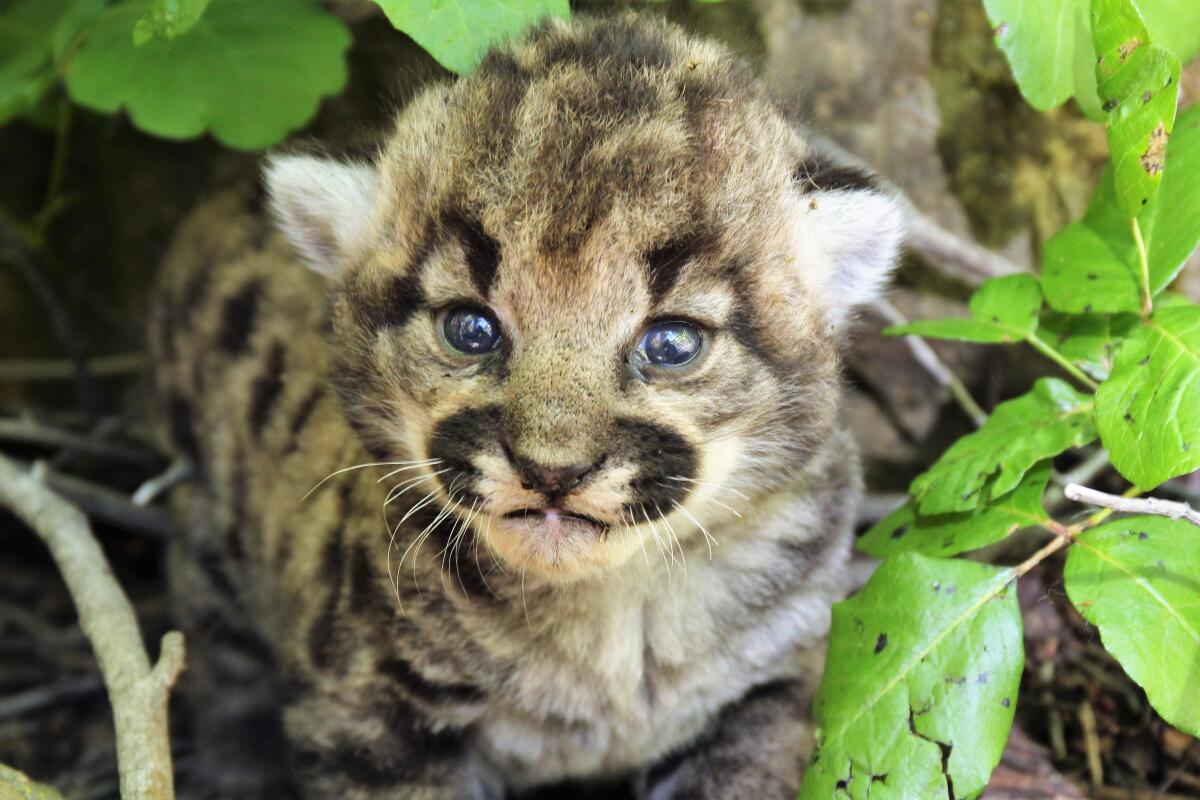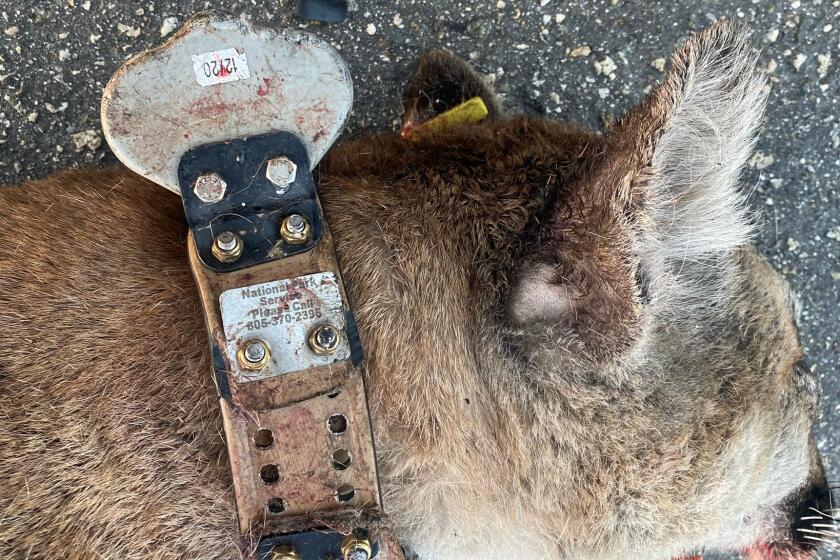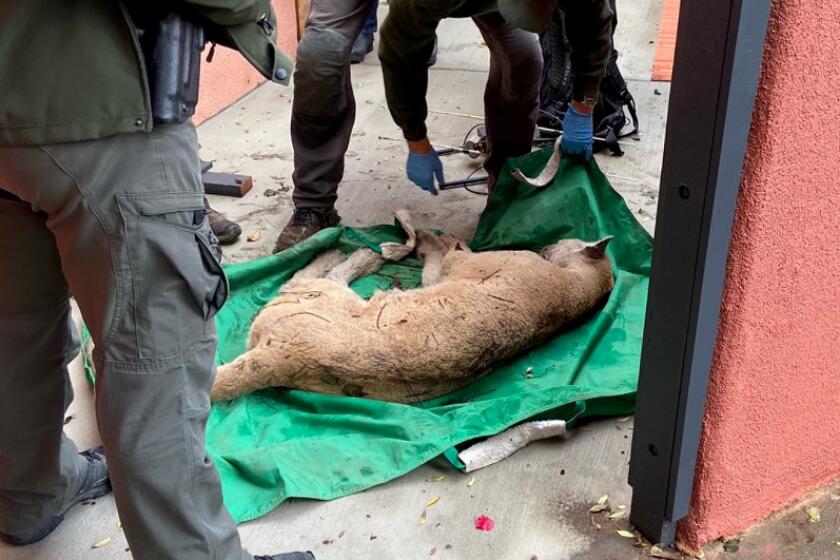Editorial: We can give mountain lion kittens an easier life than P-22 had

- Share via
The three female mountain lion kittens born little more than a month ago in the Simi Hills were healthy and feisty when they were discovered tucked away in a den on May 18.
The kittens hissed at National Park Service biologists, who captured them on video. The biologists found them near Simi Valley in a dense patch of poison oak — which doesn’t affect mountain lions the way it does people — while their mother was away hunting, feeding or resting. The researchers checked their health, affixed a tiny ear tag to each kitten and bestowed upon them the numbered handles — P-113, P-114 and P-115 — that mark them as the newest entrants into the park service’s 21-year study of pumas in and around the Santa Monica Mountains.
Within days of discovery, their mom, P-77, had moved the kittens to a new location. In a couple of months, says biologist Seth Riley of the park service, the kittens will leave the den and travel with her as she kills prey and feeds herself and her brood. When the lions are older, park service researchers will try to track them down and put GPS radio collars on them.
Mountain lions keep getting killed on the roads. California must do more to build safer crossings for animals across busy freeways and highways.
Soon enough, they will face the perils of the urban wilderness into which they were born: speeding vehicles on freeways and other roads, rat poison, a dwindling number of lions with which to mate, and the effects of inbreeding that comes with being stuck in one area. That’s presuming they survive kittenhood. When four kitten litter mates were found under a picnic table near an office complex in Thousand Oaks, underfed and chirping for their absent mother in 2021, scientists eventually took them to a veterinarian. The kittens dubbed P-100 and P-102 died shortly after. The survivors, P-101 and P-103, were taken to the Orange County Zoo for care.
Only the humans who share this mix of urban and wild land with these amazing creatures can make it easier for them to survive. A study released this year showed that 500 mountain lions have been killed on California roads in the last eight years. The beloved P-22 of Griffith Park may not have died on a road, but at some point before his death last year, he had ventured into nearby neighborhoods and was probably hit by a car, sustaining injuries that contributed to such a steep decline in health that officials decided he should be euthanized.
In the decade since he was collared as a young lion, P-22 has become emblematic of all that is wild and wonderful in Los Angeles.
Southern California’s mountain lions may be declared threatened or endangered by the end of this year. One of the ways we can help them and other animals survive are with more places to safely cross the treacherous roads and freeways. Wouldn’t it be great if the state-of-the-art $87-million Wallis Annenberg Wildlife Crossing under construction on the 101 Freeway near Liberty Canyon were finished by the time that P-77’s kittens are ready to roam for mates?
Not every crossing needs to be that spectacular. Riley, the biologist, said the Corriganville Tunnel, a path under busy Highway 118 used by hikers and equestrians, could be made more attractive to mountain lions that rarely use it now. That would be a safe way for lions to travel between the Simi Hills and the Santa Susana Mountains in search of new territory and mates. Riley said this could be accomplished by putting up fencing and adding landscaping that acts as cover for lions — features that might draw them to the tunnel and discourage them from making a run for it across the freeway.
California still needs to better regulate the use of toxic anticoagulant rodenticides. Mountain lions and other predators are severely sickened or killed when they ingest a smaller animal that was killed by the rat poison. The state has a moratorium on the use of second-generation anticoagulants (with some exceptions for agricultural operations and public health emergencies). California Assembly Bill 1322, sponsored by the Center for Biological Diversity and the animal welfare group Raptors Are the Solution, would put a similar moratorium on diphacinone, a first-generation anticoagulant that has frequently been detected in the systems of wild animals that were not targeted, such as raptors, mountain lions and bobcats. The bill passed the Assembly on Tuesday. The state Senate should pass it as well.
If we want to allow mountain lions to live among us, we must make California safer for them. If we do that, maybe P-113, P-114 and P-115 can live to mate and give birth to their own litters of kittens.
More to Read
A cure for the common opinion
Get thought-provoking perspectives with our weekly newsletter.
You may occasionally receive promotional content from the Los Angeles Times.












